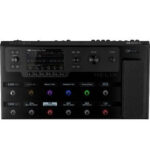Before you even plug into your amp or tweak your pedals, the very first element shaping your electric guitar’s sound is the strings. With a vast array of electric guitar strings available, selecting the perfect set can dramatically influence your instrument’s tone and playability. Changing your strings regularly is a crucial part of guitar maintenance, and whether you’re replacing worn-out strings or upgrading for a tonal shift, understanding your options is key. For frequent players or touring musicians, stocking up on bulk electric guitar strings ensures you’re always ready for a quick change, maintaining optimal performance whether you’re at home or on the road.
One of the primary considerations when choosing electric guitar strings is the material. Unlike acoustic guitars where bronze and brass are common, electric guitar strings must be made from magnetic materials to interact with your pickups. This means your choices primarily revolve around stainless steel, nickel, or nickel-plated steel. Nickel strings, reminiscent of the early days of electric guitars in the 1950s, are favored for achieving authentic vintage tones. They offer a warmer, rounder sound that many associate with classic rock and blues. On the other hand, steel strings deliver a brighter, more aggressive tone, often described as punchier, making them well-suited for genres like rock, metal, and contemporary styles. Additionally, steel’s inherent resistance to corrosion makes them a practical choice if you live in a humid environment where strings are prone to rust.
For guitarists seeking a balance, nickel-plated electric guitar strings offer a hybrid solution. These strings combine the bright characteristics and strength of steel with a smoother nickel outer layer. This nickel plating provides a comfortable playing feel and is gentler on your frets and picks, while still retaining much of the clarity and punch of steel. They represent a versatile middle ground, suitable for a wide range of musical styles.
Beyond the material, the gauge, or thickness, of electric guitar strings is another critical factor. String gauge significantly impacts both the sound and feel of your guitar. Heavier gauge electric guitar strings require more tension. This increased tension results in a fuller, louder sound with enhanced sustain, making them a popular choice for rhythm guitarists who need a robust and powerful tone. The thicker strings contribute to a richer low-end response and can handle lower tunings effectively.
Conversely, lighter gauge electric guitar strings are known for their brighter tone and increased flexibility. The lighter tension makes them easier to bend and fret, facilitating faster playing and intricate techniques. This flexibility is particularly beneficial for lead guitarists and jazz players who require agility and expressiveness. Lighter gauges are also often recommended for beginners as they are more forgiving on the fingertips and require less finger strength to play comfortably.
Finally, consider whether you prefer coated or uncoated electric guitar strings. Standard, uncoated strings are favored by many for their traditional feel and bright tone. However, coated electric guitar strings have gained popularity for several reasons. The coating extends the lifespan of the strings by protecting them from sweat and oils that cause corrosion. Coated strings often have a smoother texture, which reduces finger squeak and can enhance playing comfort. Some manufacturers even offer coated strings in various colors, allowing for personalization of your instrument’s appearance.
Ultimately, the best electric guitar strings are a matter of personal preference. Experimenting with different materials, gauges, and coatings is the most reliable way to discover what works best for your playing style and desired sound. Investing time in trying out various electric guitar strings is worthwhile, as the right set can make a remarkable difference in your guitar’s tone and your overall playing experience.

